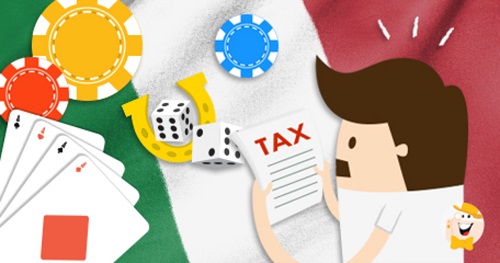Are Gambling Winnings Taxed In Canada
- Are Online Gambling Winnings Taxable In Canada
- Are Gambling Winnings Taxed In Canada Today
- Are Gambling Winnings Taxed In Canada 2020
Gambling in Canada Whether one is betting on sports events, casino games or other forms of gambling, winnings are not taxed by the Canadian law. Winnings that are obtained from online gambling sites in Canada are never taxed. However, when it comes to poker, there is an exception. Canada does not tax gambling winnings because they are not considered a constant source of income, although “an individual may be subject to tax on income derived from gambling itself, if the. “Rooted in the British common law, and codified by paragraph 40 (2) (f) of the Income Tax Act, Canada has a longstanding tradition of not taxing gambling winnings,” Tadman wrote in 2009.
In Canada, the laws pertaining to the ownership of online casinos are quite strict. Namely, only the government is allowed to own an online casino that has its headquarters within Canadian borders. For others, though, it is illegal. Nevertheless, a way to bypass these laws has been found. Many online casino owners from this country decided to operate from other jurisdictions where online gambling is legal. From there, they offer their services to Canadian players.
The laws pertaining to the players themselves, on the other hand, are rather relaxed. In fact, gamblers from Canada are allowed to play in any online casino they like, regardless of its location. Also, you will not be required to pay any taxes for your winnings most of the time, unlike in the US, where all winnings of $1200 or more are subject to a 30% tax.
There are some situations in which winnings have to be taxed, though, and they will be discussed in this article.
Do I Need to Pay Taxes on My Winnings?
Most Canadian gamblers are not expected to pay any income tax on their winnings, since these prizes are not really considered to be a viable source of income. The government simply does not see this kind of taxing as just or fair, as the majority of Canadian players do not make a living this way and gambling is not their career.
Nevertheless, there are gambling professionals who earn most of their money from games of chance, which is why they are expected to pay taxes on their prizes. For example, everyone who runs a gambling business needs to declare their profit from it on a tax form. Moreover, according to the Canadian Income Tax Act, a person is seen as a professional gambler if gambling is their exclusive source of income, or if he/she uses a specific set of skills to make a long-term profit. This is why poker players are more likely to be seen as professionals than others, as poker relies on skills just as much as it relies on luck, if not more.

As a result, those players who do not fit any of these criteria are seen as non-professionals, regardless of how much time they spend playing or how much money they make while gambling. Even if someone is an avid gambler, they will not be seen as a pro, unless they make their living doing this exclusively.
This law pertains to all the popular casino games, such as slots, blackjack, poker, and roulette, among others, and it is used to govern both online and offline forms of gambling.
How Should Professionals Calculate Their Taxes?
Professional gamblers are considered to be running their own freelance business, which is why they need to file taxes on their prize money. The winnings are taxed just like any other kind of income, while all the losses are seen as expenses and are, thus, deductible.
However, bear in mind that in each of the ten provinces and three territories, there are different income tax rates, which is why you have to be careful when filing your taxes.
For example, in Quebec, tax rates are higher than anywhere else in Canada, which is why the first C$43,790 of taxable income is subject to a 15% tax in this province. For the next C$43,785, an additional 20% tax is applied. The tax rate for the next C$18,980 is 24%, and for any taxable income of C$106,555 or more, a 25.75% tax will have to be paid.
On the other hand, you will find the lowest income tax in Nunavut, where 4% is paid on the first C$45,414, 7% on the next C$45,415, and 9% on the following C$56,838. Every amount of C$147,667 will be subject to 11.5% tax.

Remember, these rules only apply to professional gamblers, as defined in the previous paragraph. Non-professional players are exempt from paying taxes for their prizes and winnings.
Are the Laws the Same in Every Part of Canada?
Canadian provinces and territories are considered to be self-governing entities. That is why each of them has been allowed to pass its own acts regarding gambling. Basically, your location in Canada determines what kind of gambling you will be allowed to participate in legally and how old you have to be in order to take part in these activities.
However, in each of the provinces, you will be seen as a professional if you fulfill the criteria mentioned above. Also, even though tax rates differ from province to province, the fact that you have to pay taxes if you are a professional player remains.
Final Thoughts
In Canada, online gamblers who make a living playing games of chance are perceived as professionals, which is why their winnings are seen as income and are, therefore, taxable. The tax rates will depend on the players’ location, as they differ in each of the provinces and territories. However, those who have another job or career will not be considered professionals and will not be expected to pay anything.
Still, this information is subject to change. If there are any doubts, make sure to contact an accountant or a tax lawyer, as they could provide more details regarding taxes and online casino winnings for each of the provinces and territories in Canada.
Are Online Gambling Winnings Taxable In Canada

Gambling online and in brick-and-mortar establishments is a leisure activity for some – but for many, gambling is their profession. There is no shortage of professional poker players, sports bettors, bridge players and blackjack players out there making their living through gambling. Knowing about tax-laws and obligations as a gambler is essential, as mistakes can be very costly.
In some countries, gambling is 100% illegal. In countries where it is legal, there are regulations, rules & taxes to consider. In some countries and statres, casinos and betting establishments must obliged to pay tax on their profits, and in some cases, it is up to the individual to declare and pay taxes on their winnings.
International Tax Rates on Gambling Earnings
The biggest winners in the table are gamblers from the United Kingdom – with an effective tax rate of zero on ALL winnings,. This applies to all types of gambling—including poker, slots and casino games, lotteries, sports-betting & horse racing. Instead, gambling operators must pay taxes, and online gambling site operators must pay UK gambling tax duty.
In the United States, the tax rate owed on gambling winnings is a flat 25%. If you win big in Las Vegas at poker, the casino must withhold the 25% when collect your cashout, and provides you with IRS form W2-G to report your winnings to the government. Find out more on the IRS website.
Laws in Canada treat amateur and professional gamblers very differently for taxation purposes. According to the Income Tax Act, anyone in Canada winning a lottery prize or winning at a game of chance is not subject to income tax on those winnings. … In cases of sports betting, poker, or casino games and slots, winnings are also not liable for taxation – unless you are a professional gambler (as defined by paragraph 40(2)(f) of the Income Tax Act,). If you are , you must declare gambling winnings when you file your taxes and will be charged 26%.
Don’t get Yang-ed
Back in 2007, poker-player Jerry Yang topped 6,358 players at the World Series of Poker Main event, winning $8.25 million.
Are Gambling Winnings Taxed In Canada Today
On a podcast, Yang admitted to bad financial management paying taxes of just $900,000 in California, and giving along with donations and gifts to family and friends. After bad financial advice he waa left with a huge federal tax bill. Subsequently the IRS seized the his Corum main event bracelet along with other jewelry to be auctioned off to the public in order to pay Yang’s outstanding tax-bill of $571,894.54 !
2019 World Series of Poker – Main Event: Final Table Tax-Bill
The 2019 WSOP Main event final table payouts combined to total $30,825,000.
The nine lucky players who cashed on the final table of the 2019 main-event can expect to pay a combined tax bill of $11,972,653 – or around 40% of the total prizepool. You can see from the table above that despite finishing in 7th place, Londoner Nick Marchington walks away with more money in his pocket than 6th place finisher Zhen Cai!
Are Gambling Winnings Taxed In Canada 2020
Make sure you know about your tax obligations as a gambler, and manage your money and tax-payments appropriately, because the tax-man always wins!